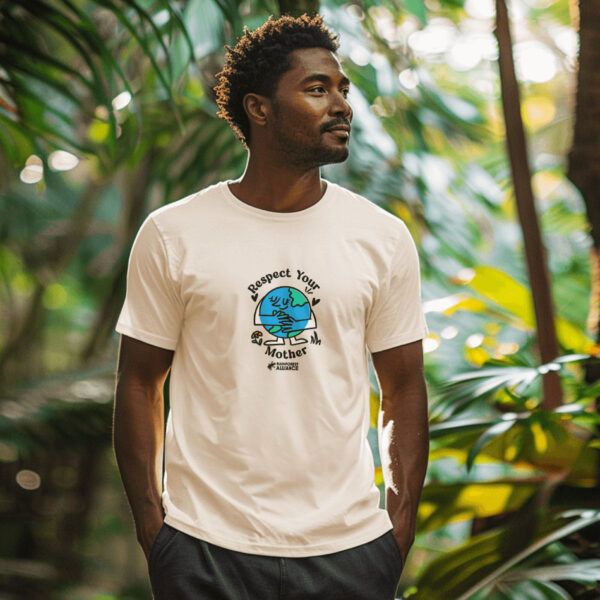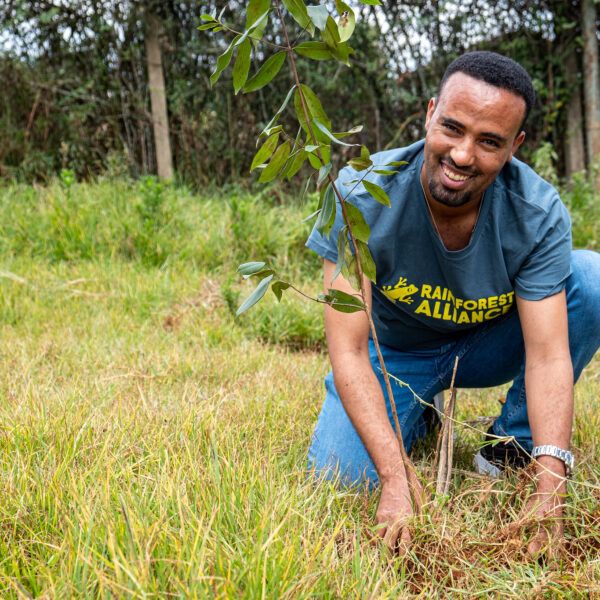Some have critiqued the notion that individuals can make any difference whatsoever when it comes to the future of our planet. Indeed, it can be difficult to assess the impact of our individual actions—unless we connect to a broader community of like-minded people taking action together.
Movements are made up of individuals whose collective actions change our culture—and that culture, in turn, influences government policy and corporate behavior. Scientists and researchers have studied the question of social tipping points in relation to political change and even climate action. As Harvard University’s Kyra Chenoweth notes in her research on political movements, it only takes the participation of a small minority of a society (3.5 percent, to be exact) in nonviolent resistance campaigns to enact serious political change.
Together, we’re building a future where people and nature thrive. Sign up today and join our movement…
One of the most meaningful things we can do as individuals is to throw our collective weight behind initiatives that trigger “positive tipping points.” These tipping points can lead to rapid and significant changes across systems and societies in support of sustainable behaviors, according to a 2020 study by the International Institute for Applied Systems Analysis published in the journal One Earth.
When it comes to sustainability, individual attitudes and habits, social networks, and systemic factors like infrastructure all come together to shape the way people adopt positive behaviors, as demonstrated in the One Earth study. For example, researchers point to how increases in the number of bicycle lanes in Copenhagen supported the adoption of cycling to a far greater extent than initially assumed.
Given these findings—along with those of social scientists who research societal norms and values, education, and information feedbacks, it’s no surprise that climate activists and sustainability advocates are urging us all to push for systemic change. There are a number of ways to do so—taking to the streets in protest is important, but certainly not the only way. Here are 5 actions individuals can take to join a collective movement for bold change in government policy and corporate practice.
Move your money
One of the most meaningful actions one can take is to divest from financial institutions that are financing the climate crisis and invest in those supporting the future we want. In an era when everything is linked, this can be a complex endeavor, so we recommend following this helpful checklist, which also includes a draft letter to send to the bank or fund after you leave (the most important part!).
Petition for gender equity at the UN Climate Conference
In international development circles, it’s widely understood that gender equity contributes to improved agricultural outcomes, community health, and the education of children. Multiple studies show that when women control their own finances, they spend more on schooling, food, and clothing for their families and contribute to the overall well-being of their communities. This is why many sustainability advocates are calling for women’s global voices, interests, and perspectives to be fairly represented at the leadership level of the 2021 UN Climate Conference (COP26). One simple way to support this is to support and amplify the #SHEChangesClimate campaign that publicly calls on Alok Sharma, President of COP26, to address the gender divisions in climate by forming a representative and inclusive leadership team.
Local and national political engagement
Given our wide-ranging, international community, it would be impossible to provide guidance on specific political parties here. However, we encourage all of the members of our alliance to get involved in both local and national politics. Do your research—or if you’re busy, form a group and divide up the research—on political candidates and their platforms. If you can’t find candidates with sustainability initiatives built into their platforms, call (or if possible, visit) your elected representatives to urge them to support policies to advance environmental justice, renewable energy transition, sustainable agricultural policies, and ecosystem conservation.

Support sustainable brands
We’re currently witnessing an explosion of new, sustainable brands and products. Some are more expensive than the megabrands commonly used in most households. But, curiously, many are comparable in terms of cost, especially if you are willing to commit to a subscription. Buying sustainably made products that don’t harm ecosystems or workers is a critically important individual and collective action we can take to support emerging brands whose core values include sustainability. The more loyal customers these sustainable brand collect, the stronger the signal to conventional brands to change their practices.
Encourage your favorite brands to join the movement
If your favorite brand is not produced sustainably, you can tag them in Instagram posts, tweet @t them, and/or write an email urging it to get on the sustainability path. If that brand happens to include ingredients that the Rainforest Alliance certifies, feel free to direct them to our business website, which provides plenty of information on the business case for sustainability and tools for measurable transformation.




